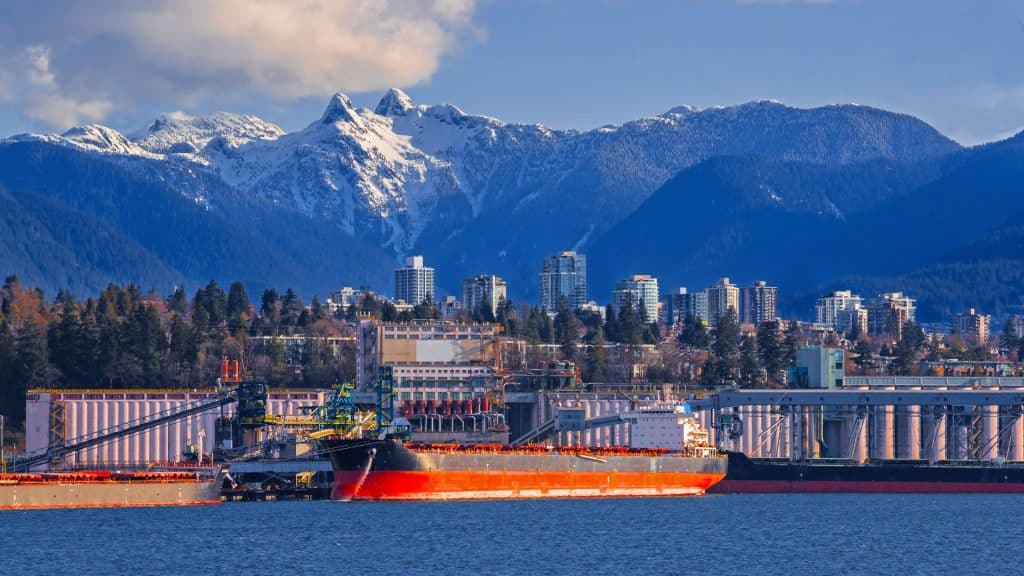CANADIAN DOCKERS LOCKED OUT OF BC AND MONTREAL PORTS
Dockers were locked out of terminals at Vancouver and Prince Rupert ports on 4 November after the ILWU Local 514 issued a strike notice; carriers issued customer advisories that alternative calls will need to be made as the west coast ports are at a standstill. Employer’s representative BC Maritime Employers Association (BCMEA) has said it is committed to the negotiating process, but the negotiations appear to be deadlocked after the latest round of mediation failed, with the Federal Mediation and Conciliation Service (FMCS) concluding it could not find a path to agreement and has not scheduled another meeting. Despite the BCMEA’s insistence that it has negotiated in good faith for the past two years, docker’s unions the ILWU Local 514 and the foremen’s union argue that employers want to replace worker’s jobs with automated terminals. ILWU member and International Transport Workers Federation inspector Peter Lahay argued that the BCMEA is attempting to demonise dockers, claiming that they are greedy. But he counters: “This isn’t a dock labour dispute this is a management dispute, given this lockout hangs on one key issue — automation versus job security at a couple of container terminals.”
EAST COAST PORT CONTRACT TALKS TO RESUME
Negotiations on a new labor contract covering workers at 36 East and Gulf Coast ports are set to resume next week between employers and their longshore union. At the time of the extension, USMX and ILA agreed to a 62% pay hike over the six years of a new pact covering 45,000 union workers. Automation remains a key sticking point as the union has adamantly opposed the introduction of new port technology that could replace longshore jobs. One option would have the sides extending their current contract again while negotiations continued. The Jan. 15 deadline which comes just days before the Jan. 20 inauguration of Donald Trump as president. Importers have been pulling shipments forward ahead of a possible second strike as well as tariffs planned by Trump on goods imported from China, but it’s unclear if ILA leadership would call for another work stoppage. ILA President Harold Daggett in the recent past met with Trump, and it’s uncertain if the new administration would invoke the Taft-Hartley Act to order striking longshore employees back to work, something the Biden administration refused to do.

DP WORLD AUSTRALIA SPLASHES $115.6M ON SILK LOGISTICS
DP World Australia, a subsidiary of DP World, has announced it has entered a binding Scheme for the acquisition of 100% of the issued share capital of Silk Logistics Holdings Limited. The transaction values the equity of Silk Logistics at approximately $115.6m. This transaction is subject to shareholder approval of Silk Logistics and standard closing conditions, including necessary regulatory approvals, and is expected to complete in the first half of 2025. Silk Logistics is a logistics services provider which operates 21 logistics hubs and 25 warehousing sites across five Australian states. “DP World Australia is excited about the opportunity to welcome Silk Logistics into our portfolio. This acquisition aligns with our strategy to deliver complimentary logistics solutions for a broad customer base across Oceania,” commented Glen Hilton, CEO & managing director, Asia Pacific, DP World.
US IMPORT CARGO TO SURGE AMID POTENTIAL PORT STRIKE, TARIFF HIKES
NRF supply chain and customs policy vice-president Jonathan Gold said: “October’s strike lasted only three days but there’s the potential for a longer strike if a new labour contract is not reached after the contract extension runs out in mid-January. The International Longshoremen’s Association briefly went on strike in October at East and Gulf Coast ports after its contract with the US Maritime Alliance expired. The strike ended when both sides reached an agreement for a wage increase and a contract extension through 15 January, with formal negotiations set to resume next week. An NRF study disclosed this week warns that Trump’s proposed tariff increments could inflate consumer prices by as much as $78bn annually. Hackett Associates founder Ben Hackett said: “We are witnessing elections around the world where discontent is leading to inward-looking policies that threaten trade with the almost certain potential for increasing tariffs. “In the United States, this is particularly true with the election of Donald Trump but it is not much different in Europe, with the EU calling for tariffs to be applied to a growing number of products from China.”